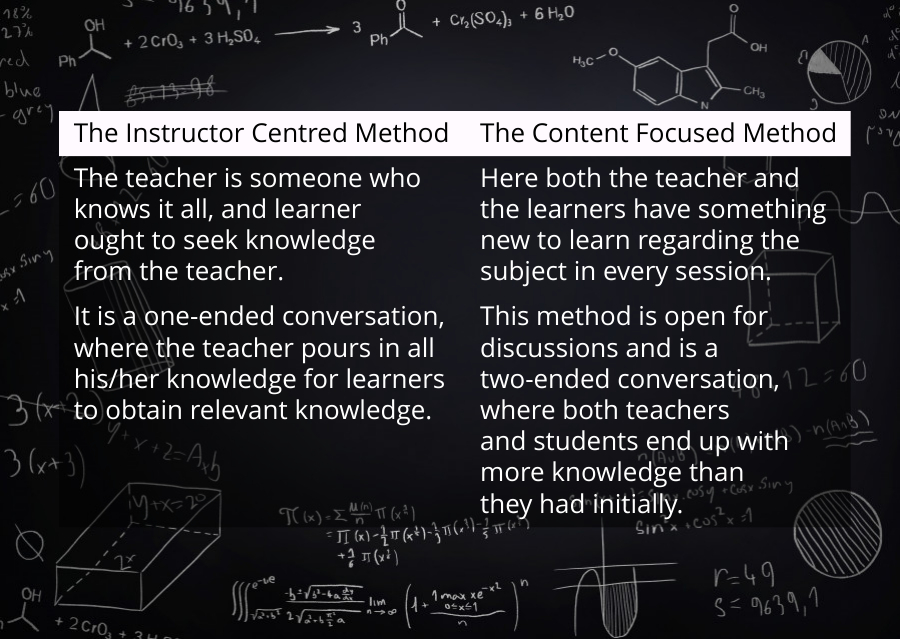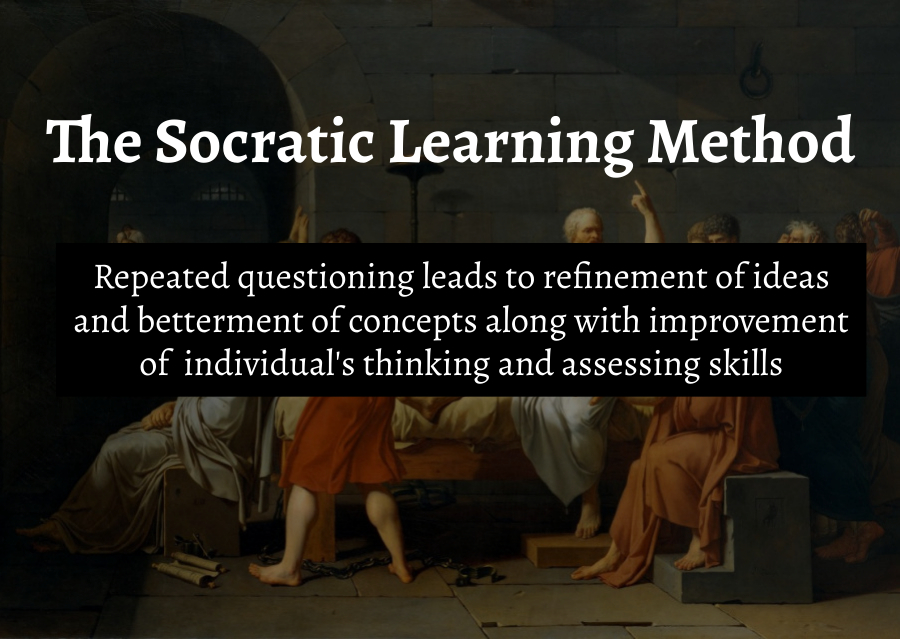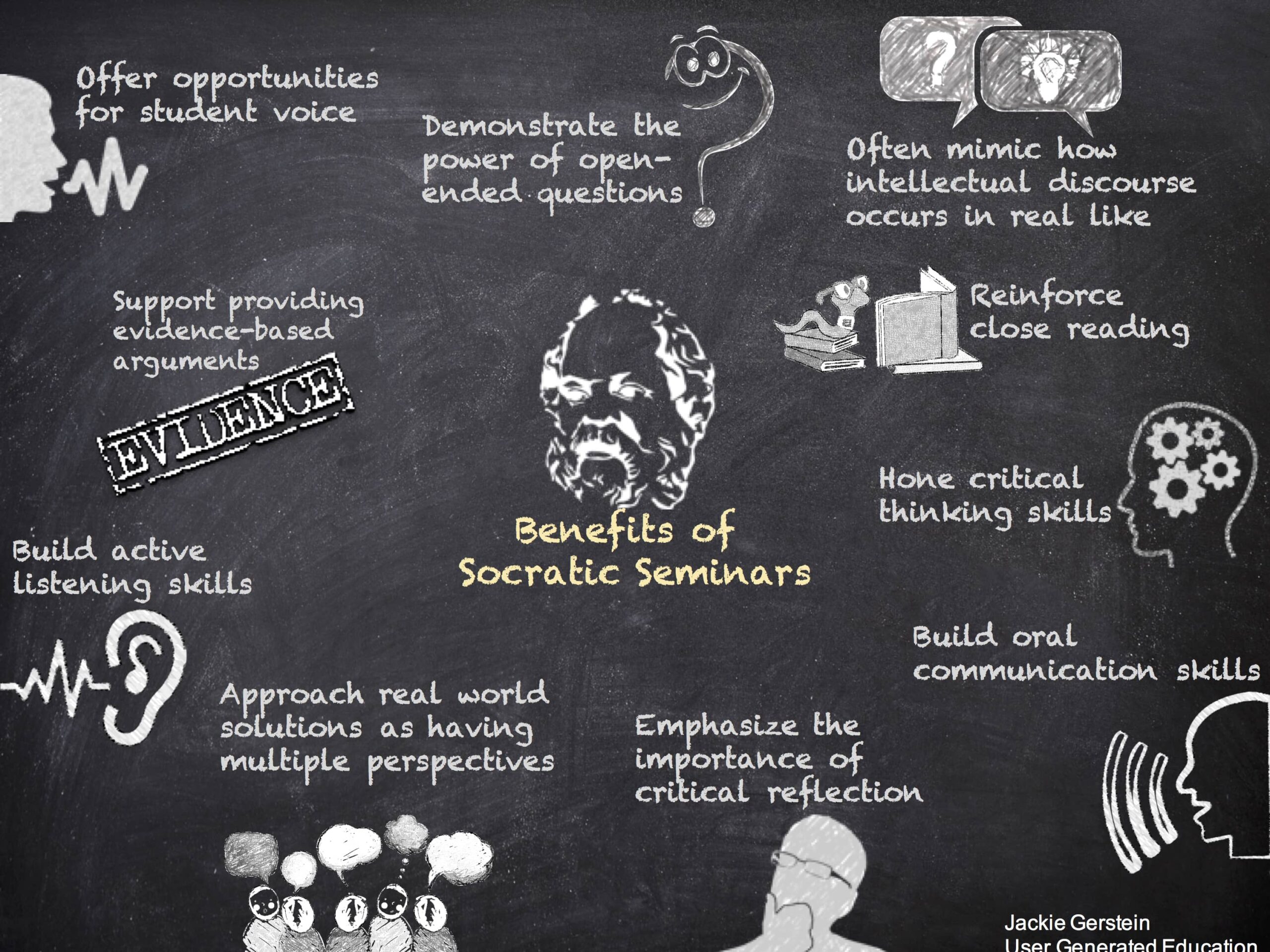When considering their approach to pedagogy, pedagogues are always looking for the method that is advantageous for all of their students. Teachers want their students to enjoy the learning process and they want the classroom to be well ordered and controlled. Ergo, the discourse of teacher-centred v/s student-centred education has been in the vanguard of educator’s minds for long-standing. The Socratic learning method is a very promising way of inculcating knowledge in a thought-provoking and critical way.
The Different Teaching Methods
Teaching method A is teacher/instructor-centred methods, teacher casts himself/herself in the role of adept of the subject matter. The teacher is looked upon by the learners as a person with expertise in a certain area who may be called upon as necessary to perform a task or provide information. Learners on the other hand are presumed to be submissive and profuse legatee of knowledge from the teacher. Instances of such learning techniques are explanatory which doesn’t require any stab in the teaching process. Such methods are called ‘Closed-Ended’ as they hold a lack of participation from the mentee.
The method categorized B is the content-focused methods. In this class of methods, both the teacher and the learners have to fit into the subject that is taught. By and large, this means individual fact and adroitness to be taught are contemplated as unimpeachable or salient. The whole prominence is situated upon content and heedful scrutiny of content. Both the teacher and the students cannot alter or become condemnatory of anything to do with the content.

In the programmed learning approach, novices gain an understanding from learning materials like textbooks, teaching machine or computer. This is a research-based learning method in which materials provide in a logical and tested sequence. The text is in small step or in the hunk. After each step, mentees have to go through some questions relevant to the subject matter to testify their apprehension. Correct answers are shown right away. It means learners make responses at all stages and is given their results instantly.
For a particular method to be pertinent and efficient, it has to correspondence with the trait of the learner and the kind of learning it is presumed to bring out. According to the great Greek philosopher, Socrates, it is in us where all the answers to human questions inhabit. All the answers are easily achieved if we participate in disciplined and thoughtful dialogue, seeking to discover the ultimate truth. The Socratic method of questioning is named after the Greek philosopher, Socrates(469 BC-399 BC) who lived in Athens due to his habit of engaging in philosophical conversations in public and at private gatherings.
The Socratic Learning Method
The objective of Socratic’s learning method is ‘inquiry’. It does not intend to flout students’ original arguments, but partially modifies their original arguments. Teachers keep captive students by asking questions that require procreative answers. Ideally, the answers to questions are not an accomplishment for thought but are instead dawn to further scrutiny and research. Teacher questions their students in a manner that requires them to consider how they rationalize and acknowledge the topic. The purpose of the questions are not to create an environment of tactical shrewdness, but rather to aid students to assesses these attitudes, beliefs, knowledge and logic. The goal of this method is to help students process information and engage in a deeper understanding of topics.
Discussion between students and teachers is collaborative and open-minded as opposed to debate, which is fierce and peculiar. There is no predetermined argument or terminus to which the teacher attempts to lead the students. They don’t use PowerPoint slideshow. Generally, the teacher comes up with open-ended questions about the subject matter and encourage students to use textual evidence to support their beliefs and answers. Thought itself is a continuous thread woven throughout lives rather than isolated sets of questions and answers. The practitioners of the Socratic method may want students to know facts, but they want to focus more on what the student think about these facts, not what others think! It’s about self-guided improvement.

The Socratic method pivots on virtuous education, on how one ought to live. Socratic inquiry necessarily proceeds in an ad hominem style. The subject inquiry is not one’s notion of the world in general but what each participant thinks or says about the world. The aim is not to depersonalized premises and abstractions, but to probe the underlying values and beliefs of each inquirer.
In Plato’s Gorgias, Socrates says, “Do not take what I say as if I were merely playing, for you see the subject of our discussion – and on what subject should even a man of slight intelligence be more serious? – namely, what kind of life should one live…”Socrates generally applied his method of examination to concepts that seem to lack any tangible definition. The key moral concepts at the time, the virtues of piety, wisdom, temperance, courage and justice. Such an examination challenged the inferred moral beliefs of interlocutors, bringing out meagre an inconsistencies in their beliefs, and usually resulting in aporia.
Socrates himself professed his soi-distant ignorance, but others still claim to have comprehension. Socrates believed that his awareness of his ignorance made him wiser than those who, though ignorant, still claimed knowledge. While this belief seems paradoxical at first glance, it in fact allowed Socrates to discover his own errors where others might assume they were correct.
How Is The Socratic Method Different From A Debate?
A Socratic Circle is not a debate. The objective of this pursuit is to have participants work together to construct meaning and arrive at an answer, not for one student or one group to “win the argument”. Rather than memorizing the particulars that have been provided to them, this approach more focuses on the belief that participants seek and gain a deeper understanding of concepts in the text thoughtful dialogue.
The Socratic Method can be divided into two foremost categories. The classical method refers to the early Socrates’ dialogues and some other dialogues of Plato. In these dialogues is, Socrates claims to have no knowledge of even the most fundamental principles such as justice, holiness, friendship or virtue. The aim is to achieve an adequate understanding of basic principles instead of moving to more advanced and complicated topics. This method fails to give satisfactory answers in a conversation. This phase deconstructs people’s previous understanding and help them be conscious of their ignorance of a certain topic at all and helping them know what they do not know.
The Modern Socratic Method originates in Plato dialogues which leads a person step by step and knowledge is gained by more and more questions. The classical approach is just naming or identifying different topics, the Modern method is one that goes deeper, producing the specific knowledge of those topics. It makes the situation in which the students are not ignorant and in which they know the answer.

A Look At The Cons
Some educators and teachers claimed to have complications with this method. The concepts usually related to this are perplexity, humiliation and shame as bad effects of the Socratic Method user. The manners that teachers use are like “I don’t think it is true” or “Are you sure you are right” and those like “You just think you are so smart, don’t you”, which will then cause the negative feelings for sure. The feelings of embarrassment and shame are the psychological factors brought to the discourse by the students.
Socrates showed that even a slave boy can be dealing with complex mathematical problems and that no man can be sure he is completely right in his claims unless he examines it with someone more experienced than he himself. Sometimes incompetence doesn’t know he/she is incompetent.
The Socratic Method is an outlook that can help hearten students learning effectively. Socrates instructed his students to inquire and question logical principles and beliefs and not to be condemning thinkers. The application of this technique is to make students independent learners and cultivate their thinking process.
As we have seen possible disadvantages of this technique, it is extremely important for teachers who will use the method to know its principles, the possible application instruments and techniques to avoid causing mentioned disadvantages. The students are free thinkers and learners and the teacher is adept and the one who will avert all misinterpretations and misconceptions with the Method usage.
Atomic Dhruvi
To learn more about such unique scientific research ; Click Here




awesome:)